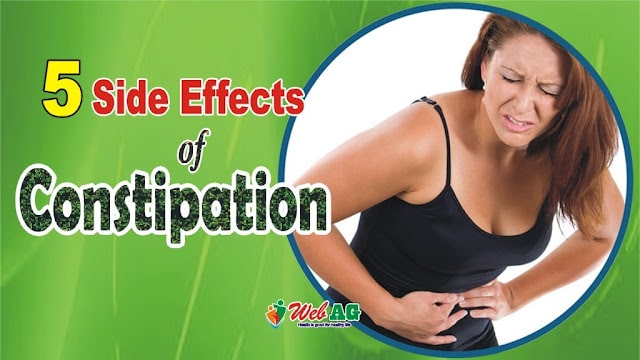Have you ever had trouble in the bathroom? While it may be common when we are not at home or when we eat foods that cause constipation when it happens frequently or for too long, it's necessary to seek medical help. Do you know for how many days it is normal to not go to the bathroom?
Up to 3 days without evacuating can be considered normal for some people, as long as there are no symptoms of constipation. However, for most people, pooping less than 3 days per week can be considered a sign of constipation. here are the top 5 side effects of constipation.
Intestinal Constipation
Intestinal constipation can intoxicate your body and cause many health problems. It is important, and healthy, to poop every day. When your evacuation isn't frequent, or when your stools are small and hard, you are constipated.Difficulty processing foods, characterized by pain, bleeding, and discomfort, can inflame and obstruct your intestines, putting your health at risk. Dehydration, lack of exercise, and a diet poor in fiber are some of the factors that can cause constipation. These are the main consequences of constipation:
Side Effects of Constipation
1. Lack of appetite
If you don't go to the bathroom frequently, you may experience a loss of appetite. If you don't eat anything, your body won't have anything to process and eliminate, worsening the problem.
2. Hemorrhoids
Constipation can irritate your intestinal tube and cause hemorrhoids. When we don't go regularly to the bathroom, the muscles get tense, which makes it difficult to eliminate feces. The veins of this area can get inflamed and overloaded, weakening its performance.
3. Skin problems
Constipation can result in swelling, skin rashes, acne, and dark circles under the eyes.
4. Headaches
Do you have headaches? It can be a signal that your body is having trouble eliminating the toxic material in your feces. The physical effort you make to help eliminate feces can also cause headaches.
5. Bad digestion
Bad digestion, gas, pain, and nausea can all be signals of constipation. To prevent constipation, eat more vegetables, green leaves, fruits, bread, cereal, rice, whole grain pasta, oatmeal, and wholegrain wheat. Fiber increases the volume of stool and facilitates the elimination of fecal matter, improving intestinal traffic.
Drink plenty of water because fiber can get dry, which makes it difficult to eliminate and can even worsen your constipation. Water keeps the fecal matter humid and soft, preventing constipation. Another way to prevent this is to go to the bathroom as soon as you feel the need.
Besides that, regular practices of physical exercises, such as walking also contribute to better intestinal function. If even after eating more fiber drinking more water and exercising you still spend more than one week without evacuating, or evacuate less than 3 times per week, visit a Gastroenterologist to examine your problem.




.png)













